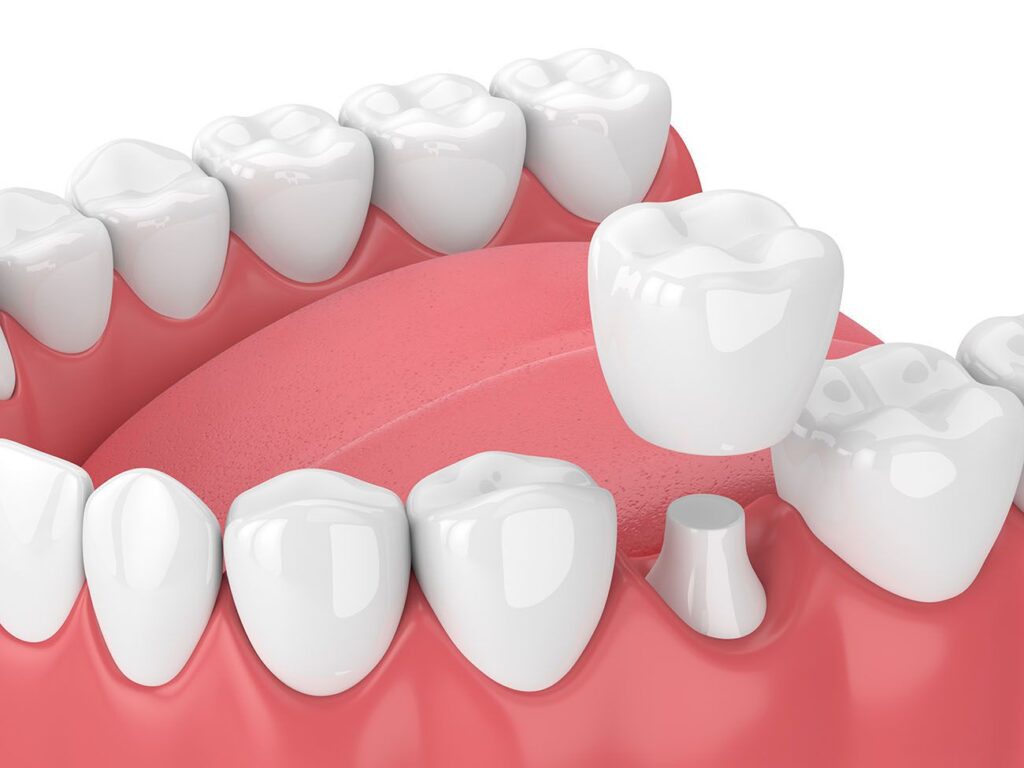Is tooth sensitivity disrupting your everyday life? Sharp tooth pain can make it hard to eat and perform other functions, even if the pain happens intermittently. Chronic tooth sensitivity will not go away on its own, so you should not delay calling your dentist to find relief from this discomfort.
Many people may wonder if tooth sensitivity requires restorative dental solutions like a crown to address the issue. While dental crowns can be beneficial in improving the health, function, and structure of a damaged tooth, they are not always necessary to resolve sensitivity pain.
Your dentist will determine the right treatment for your unique oral health needs when you attend a dental consultation. In the meantime, read on to learn more about how and when a dentist might use a dental crown to treat tooth sensitivity in a patient.

How Does a Dental Crown Protect a Tooth?
A dental crown is a custom-made ceramic cap that will fit over a tooth, covering the entire surface. It seals into place with dental cement, creating a durable shield that protects the tooth.
This makes it a great treatment for patients suffering from tooth sensitivity. This type of tooth pain happens when the enamel, the tooth’s outer layer, erodes, thins, or weakens in some way.
Lost or damaged enamel will expose the tooth’s interior, which features nerves. If an external item touches the nerves, then you can feel sharp sensitivity pain until the stimulus is removed.
The crown replaces weak enamel, making a barrier to prevent the stimulation of these nerves. Then you do not have to worry about this oral pain any longer. The crown will stay in place for about fifteen years, offering reliable restoration of the tooth and long-lasting pain relief.
What Other Ways Can a Dentist Treat Tooth Sensitivity?
A dental crown can be a highly beneficial way to treat tooth sensitivity, but your dentist will need to evaluate the affected tooth to determine the best way to resolve the symptom. The underlying causes of the tooth pain will affect the treatment the dentist will offer.
For instance, if a cavity is causing tooth sensitivity, the dentist will need to treat the decay and give you a dental filling to fix the problem. Sensitivity will go away when the filling restores the tooth’s structure.
In mild cases of tooth sensitivity, a dentist might suggest using a desensitizing toothpaste. This product will block exposed nerves so that you can prevent pain. It will address the symptoms but not work to fix damaged enamel.
Sometimes, cosmetic dental work, like veneers or bonding, will shield exposed nerves and treat tooth sensitivity. Good oral hygiene will ensure your treatment will last as long as possible.
The severity of the dental damage and your medical history will influence your oral health care. Give your dentist a call to find tooth sensitivity relief and boost your oral health now.
